Recent Blog Posts
Target Recalls Phone Chargers After Reports of Spontaneous Ignition
 When a product is thought to be unsafe or numerous reports are made regarding injuries sustained from a product, that product is sometimes recalled. Individuals who own recalled products are encouraged to immediately stop using the product and return it to the store they bought it from. According to Consumer Reports, an astounding 34 million products were recalled last year alone. Recalled products can include anything from faulty automobile parts to unsafe children’s’ toys. Individuals who are injured by a defective or malfunctioning product may choose to seek compensation for their injuries through a product liability claim.
When a product is thought to be unsafe or numerous reports are made regarding injuries sustained from a product, that product is sometimes recalled. Individuals who own recalled products are encouraged to immediately stop using the product and return it to the store they bought it from. According to Consumer Reports, an astounding 34 million products were recalled last year alone. Recalled products can include anything from faulty automobile parts to unsafe children’s’ toys. Individuals who are injured by a defective or malfunctioning product may choose to seek compensation for their injuries through a product liability claim.
Some Target Brand iPhone Chargers May Pose a Risk to Users
Electronic products like appliances, computers, smartphones, and electrical cords can be especially dangerous when they are defective. In 2016, consumers were horrified to learn of reports that Samsung Galaxy Note 7 cell phones were bursting into flames. Samsung recalled an astounding 1 million phones after learning about the dangerous risk of ignition. They provided consumers with refunds and exchanges, but it was not enough to fully solve the problem. Consumers reported that the replacement phones also caught fire, so Samsung had to recall those as well. We now know that the spontaneous ignition problem was caused by a design failure in the original Samsung Galaxy Note 7 and a manufacturing defect in the replacement phones.
Theme Park Accidents That Could Lead to a Personal Injury Lawsuit
 For some, the thought of riding a huge rollercoaster at a theme park is exhilarating. Others avoid amusement park rides entirely. One reason people may hesitate before getting on an amusement park attraction is because they have seen footage of deadly amusement park accidents on the news. While major injuries and deaths at amusement parks are rare, these types of accidents can happen. Most theme park injuries are not related to malfunctioning rides but instead are caused by more mundane issues like uneven walkways and spilled liquids. When an amusement park is not adequately maintained and this negligence leads to a guest’s injury or death, the park and its ownership can be held liable.
For some, the thought of riding a huge rollercoaster at a theme park is exhilarating. Others avoid amusement park rides entirely. One reason people may hesitate before getting on an amusement park attraction is because they have seen footage of deadly amusement park accidents on the news. While major injuries and deaths at amusement parks are rare, these types of accidents can happen. Most theme park injuries are not related to malfunctioning rides but instead are caused by more mundane issues like uneven walkways and spilled liquids. When an amusement park is not adequately maintained and this negligence leads to a guest’s injury or death, the park and its ownership can be held liable.
Amusement Park Attractions Must Be Inspected
In Illinois, the Carnival and Amusement Rides Safety Act requires theme park attractions to be inspected before they are opened to the public and to be re-inspected annually. Every year, operators must obtain a permit from the Illinois Department of Labor that serves as proof of the inspection. If a ride or another theme park attraction is operated without a permit or inspection, the operator may face criminal charges. If someone is injured on a ride which was not properly inspected, this could give rise to a negligence claim and, in fact, a presumption of negligence on the part of the park operator.
What Kinds of Damages Are Available in a Brain Injury Case?
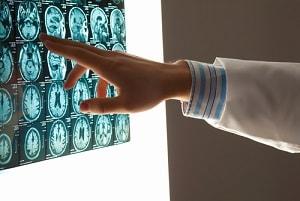 Head injuries are tricky. Sometimes a person falls and bumps their head and all they are left with is a small bruise or mild headache. However, sometimes life-threatening brain injuries can be caused by just a simple accident. Slipping on a wet floor can cause someone to fall backwards and hit the back of their head which causes a brain bleed. A fall from an electric scooter onto concrete could also cause a serious brain injury.
Head injuries are tricky. Sometimes a person falls and bumps their head and all they are left with is a small bruise or mild headache. However, sometimes life-threatening brain injuries can be caused by just a simple accident. Slipping on a wet floor can cause someone to fall backwards and hit the back of their head which causes a brain bleed. A fall from an electric scooter onto concrete could also cause a serious brain injury.
Brain injuries can happen for almost any reason. When these injuries are caused by negligence, the injured person or his or her loved ones may be able to receive compensation for their damages.
When Are Damages Awarded?
If an injury-causing accident was the result of another party’s reckless or negligent behavior, the injured person may consider filing a personal injury lawsuit. In order to bring a successful civil suit, the injured person and his or her attorney will need to prove several things. Firstly, they must show that the negligent party had a duty to the person harmed and that this duty was not upheld. For example, anyone driving a motor vehicle has a duty to obey traffic laws. A drunk driver who causes an accident is not fulfilling this duty. Next, they must prove that the negligent party’s action was the cause of the harm. Lastly, they must prove that the victim suffered calculable damages.
Emergency Room Errors Often Lead to Medical Malpractice Claims
 Shockingly, studies show that medical errors are now considered the third leading cause of death in the United States. It is estimated that between 250,000 and 440,000 people in the U.S. lose their lives every year because of medical mistakes. One place where medical errors often occur is the emergency room. If you have ever had to visit an emergency room, you probably already know that they can be chaotic environments. People go to an emergency room for a variety of ailments, some life-threatening and some not. If you or a loved one suffered because of a mistake an ER doctor or technician made, you may have grounds for a successful personal injury claim.
Shockingly, studies show that medical errors are now considered the third leading cause of death in the United States. It is estimated that between 250,000 and 440,000 people in the U.S. lose their lives every year because of medical mistakes. One place where medical errors often occur is the emergency room. If you have ever had to visit an emergency room, you probably already know that they can be chaotic environments. People go to an emergency room for a variety of ailments, some life-threatening and some not. If you or a loved one suffered because of a mistake an ER doctor or technician made, you may have grounds for a successful personal injury claim.
Mistakes Made in the Emergency Room Can Be Deadly
Emergency room errors are appallingly common. In fact, some sources report that about 5-10% of all ER visits involve mistakes. Because there are approximately 100 million ER visits in the United States each year, this means 5-10 million emergency room errors are committed every year. Of course, not every mistake is life-threatening or even harmful, but many of these mistakes have the ability to kill a patient. Emergency room doctors and nurses cannot always immediately know what is wrong with a patient or how to treat him or her. However, when emergency room mistakes are egregious or caused by medical negligence, the mistake may become an issue of medical malpractice.
What to Do If Your Child Was Injured by a Defective Toy
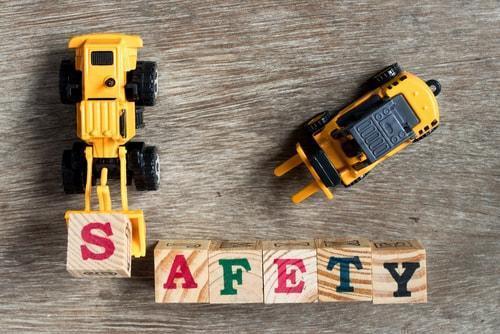 Parents usually trust that the toys and other child or infant products their young ones enjoy are safe. While this is generally the case, sometimes defective or malfunctioning children’s products can make it into the hands of the most vulnerable among us. In fact, the Center for Injury Research and Policy at Nationwide Children’s Hospital estimates that a child suffers a toy-related injury every three minutes in the United States. In 2014 alone, 251,000 children needed emergency room treatment for toy-related injuries. If you have a child who was injured by a toy, you may be able to receive compensation for your damages.
Parents usually trust that the toys and other child or infant products their young ones enjoy are safe. While this is generally the case, sometimes defective or malfunctioning children’s products can make it into the hands of the most vulnerable among us. In fact, the Center for Injury Research and Policy at Nationwide Children’s Hospital estimates that a child suffers a toy-related injury every three minutes in the United States. In 2014 alone, 251,000 children needed emergency room treatment for toy-related injuries. If you have a child who was injured by a toy, you may be able to receive compensation for your damages.
Assigning Blame for Defective Toys
Defective and dangerous toys are often recalled. However, it can be hard to know exactly who is to blame when a defective toy injures a child. It is possible that responsibility in a toy-related product liability lawsuit lies with the manufacturer of the toy or its components, the company that that sold the toy; the company that assembled the toy, or another party. Toy deficiencies often involve a manufacturing defect which damages an entire product line or a flawed toy design which was unsafe to begin with. If poor manufacturing or unsafe design can be shown to be the cause of injuries, then the toy manufacturer or designer may be held liable for damages. Lack of adequate warnings can also cause injuries. If it can be proved that practical instructions or warnings would have reduced or prevented the injuries your child sustained, you may have a valid personal injury case. However, if the danger that the toy posed was generally known, you may have a harder time making a successful injury claim.
Signs of Nursing Home Neglect
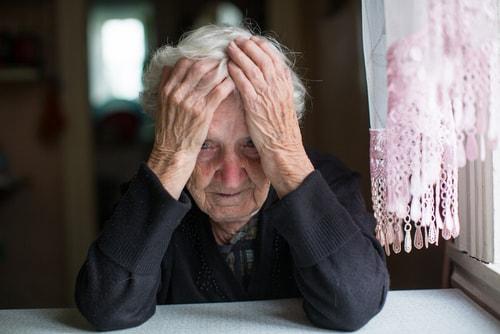 Placing a loved one in a nursing home or assisted living facility can be an incredibly difficult thing to do. Most people make this decision because they do not have the ability to provide the round-the-clock care that their loved one requires – especially if they have a career or family of their own to care for. We trust that nursing home staff will provide competent medical care and treat our loved ones with dignity and respect, but tragically, this does not always happen. If you have a loved one in a nursing home, make sure you are vigilant for signs of neglect and abuse.
Placing a loved one in a nursing home or assisted living facility can be an incredibly difficult thing to do. Most people make this decision because they do not have the ability to provide the round-the-clock care that their loved one requires – especially if they have a career or family of their own to care for. We trust that nursing home staff will provide competent medical care and treat our loved ones with dignity and respect, but tragically, this does not always happen. If you have a loved one in a nursing home, make sure you are vigilant for signs of neglect and abuse.
Staffing Issues Can Lead to Neglect
Many nursing homes are understaffed. Others have high staff turnover which means that staff often do not have time to form personal relationships with residents. Inadequate training can also be a major problem which leads to poor care in a nursing home. When staff are not properly trained or are overworked, they can make serious mistakes which endanger residents. Nursing home residents with compromised immune systems, ongoing medical issues, and elderly residents are most at risk of dying from neglect.
Recovering Compensation for an Injury Sustained in a Restaurant
 Most people never expect to suffer an injury while they are enjoying a nice meal in a restaurant. Fortunately, restaurant patrons in Illinois who have been injured due to negligence are often able to recover compensation for damages. Read on to learn about premises liability suits for injuries that occur in restaurants and what you should do if you were injured due to another party’s carelessness.
Most people never expect to suffer an injury while they are enjoying a nice meal in a restaurant. Fortunately, restaurant patrons in Illinois who have been injured due to negligence are often able to recover compensation for damages. Read on to learn about premises liability suits for injuries that occur in restaurants and what you should do if you were injured due to another party’s carelessness.
Slip and Fall Injuries Sustained at Restaurants
There are several different ways that a person could be injured while out to eat. One of the most common injuries sustained by restaurant patrons is a slip and fall injury. For example, when staff neglect to clean up spills, they create an environmental hazard that could cause a customer to slip and fall. Sometimes falls result in nothing but a bruise or two. However, if the injured person hit their head or spine when they fell, the resulting physical damage could be much worse.
Falling Cargo from Trucks Can Cause Devastating Injuries to Other Motorists
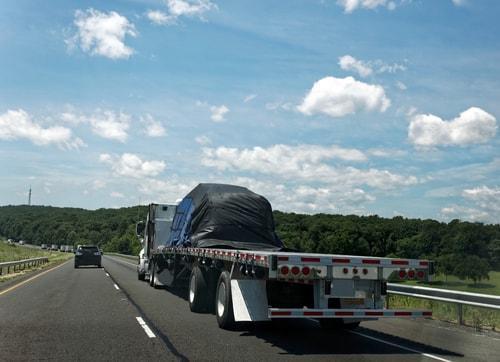 Many people feel uneasy driving behind a large semi-truck or other vehicles carrying cargo. Looking past the steering wheel and seeing large crates or other objects strapped the vehicle in front of you can be unnerving to say the least. Unfortunately, these fears are not completely irrational. While most truck cargo is loaded and strapped down securely, loose cargo can and does sometimes fall out of trucks. The debris can easily hit another vehicle or cause an accident. Sadly, people have been seriously injured and killed due to improperly loaded or loose truck cargo.
Many people feel uneasy driving behind a large semi-truck or other vehicles carrying cargo. Looking past the steering wheel and seeing large crates or other objects strapped the vehicle in front of you can be unnerving to say the least. Unfortunately, these fears are not completely irrational. While most truck cargo is loaded and strapped down securely, loose cargo can and does sometimes fall out of trucks. The debris can easily hit another vehicle or cause an accident. Sadly, people have been seriously injured and killed due to improperly loaded or loose truck cargo.
Trucks with Unsecure Cargo Are in Violation of Federal Law
The Federal Motor Carrier Safety Administration (FMCSA) mandates that truck cargo is to be properly secured by using equipment like wedges and/or tie-downs so that it does not shift during transportation. The use of inflatable bags and similar materials as filler or padding between pieces of cargo or between the cargo and the trailer walls may be necessary to prevent cargo from moving within the truck and causing problems. Cargo that is not adequately secured can shift during transportation and easily throw an 18-wheeler off balance. This can result in a jack-knife accident or other serious collision. Loose cargo that falls into the road can also be a deadly hazard.
Maximizing Your Chances of Compensation after a Drunk Driver Accident
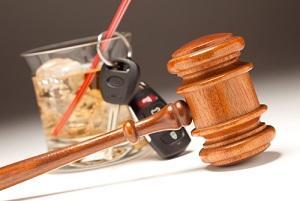 Being involved in a car crash can be terrifying. After the accident, an injured person may be left unable to work or enjoy their life and burdened with costly medical bills. If you have been injured by a person who was driving under the influence, you may have an opportunity to recover compensation for your damages through a personal injury suit.
Being involved in a car crash can be terrifying. After the accident, an injured person may be left unable to work or enjoy their life and burdened with costly medical bills. If you have been injured by a person who was driving under the influence, you may have an opportunity to recover compensation for your damages through a personal injury suit.
While insurance companies may offer some compensation for a car accident that was not your fault, insurance settlements are often too small to cover all of the damages the injured person endured. Suing the other driver or their insurance company is one way to help cover the costs of missed work, ongoing medical care, and other damages. There are certain steps anyone should take after being injured in an accident. If you plan to pursue compensation, it is even more important that you follow these procedures.
My Child Was Injured Because of Negligent Day Care Workers; Now What?
 Many working parents send their children to daycare, before and after school programs, summer camps or another type of childcare. These programs can be wonderful tools for working parents or for parents who want their children to have some extra socialization and education. Unfortunately, not every childcare organization meets the expectations parents have regarding health and safety. Some daycares are not kept to a high standard of cleanliness and others are staffed by undertrained or underqualified employees. If your child suffered an injury or illness because of negligence on the part of a daycare or childcare facility, you may be able to seek compensation for medical bills and other damages through a personal injury suit
Many working parents send their children to daycare, before and after school programs, summer camps or another type of childcare. These programs can be wonderful tools for working parents or for parents who want their children to have some extra socialization and education. Unfortunately, not every childcare organization meets the expectations parents have regarding health and safety. Some daycares are not kept to a high standard of cleanliness and others are staffed by undertrained or underqualified employees. If your child suffered an injury or illness because of negligence on the part of a daycare or childcare facility, you may be able to seek compensation for medical bills and other damages through a personal injury suit
Always Get Injuries Evaluated by a Medical Professional
As with any injury claim, the person bringing the claim, called the claimant, and his or her legal team must prove that the injury caused damages. The best way to show proof of this is with medical reports and bills. Bringing a successful personal injury suit without an official medical report can be nearly impossible. Do not hesitate to talk your child to the doctor or emergency room if he or she is injured at while under the supervision of a daycare or childcare facility. You may also be able to seek compensation for your child’s pain and suffering in addition to medical bills.



